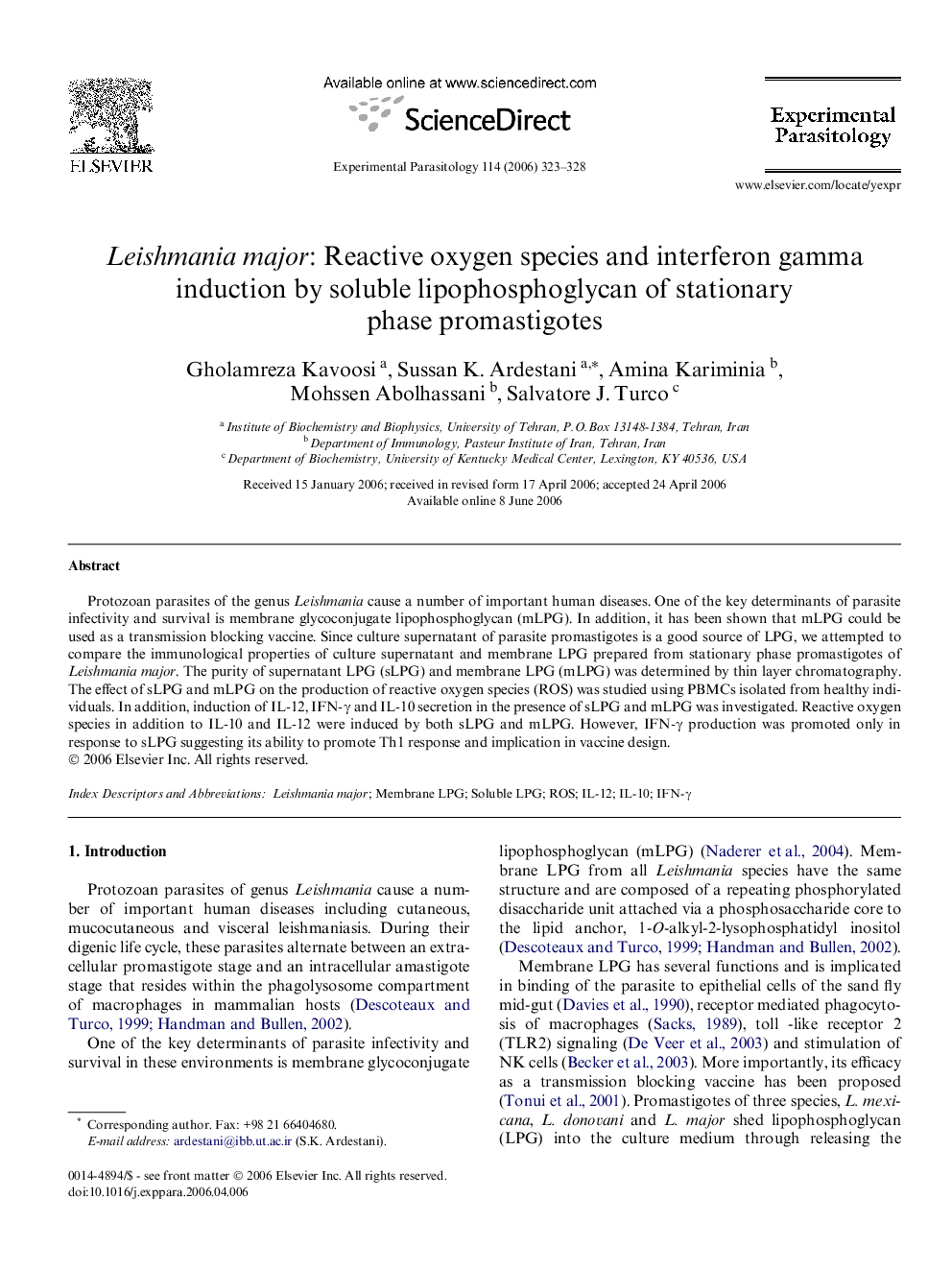| Article ID | Journal | Published Year | Pages | File Type |
|---|---|---|---|---|
| 4372122 | Experimental Parasitology | 2006 | 6 Pages |
Protozoan parasites of the genus Leishmania cause a number of important human diseases. One of the key determinants of parasite infectivity and survival is membrane glycoconjugate lipophosphoglycan (mLPG). In addition, it has been shown that mLPG could be used as a transmission blocking vaccine. Since culture supernatant of parasite promastigotes is a good source of LPG, we attempted to compare the immunological properties of culture supernatant and membrane LPG prepared from stationary phase promastigotes of Leishmania major. The purity of supernatant LPG (sLPG) and membrane LPG (mLPG) was determined by thin layer chromatography. The effect of sLPG and mLPG on the production of reactive oxygen species (ROS) was studied using PBMCs isolated from healthy individuals. In addition, induction of IL-12, IFN-γ and IL-10 secretion in the presence of sLPG and mLPG was investigated. Reactive oxygen species in addition to IL-10 and IL-12 were induced by both sLPG and mLPG. However, IFN-γ production was promoted only in response to sLPG suggesting its ability to promote Th1 response and implication in vaccine design.
